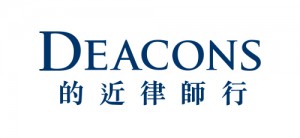23 July 2020
In an effort to attract more foreign talent to work in the Guangdong-Hong Kong-Macau Greater Bay Area (GBA), the Ministry of Finance and State Administration of Taxation jointly issued a Notice on 14 March 2019, granting Individual Income Tax (IIT) subsidy to overseas (including Hong Kong, Macau and Taiwan) high-end talent and talent in short supply working in the GBA (Circular 31). Based on the spirit of Circular 31, the Department of Finance of Guangdong Province and the Guangdong Provincial Tax Service under the State Administration of Taxation issued a Notice on Implementing the IIT Preferential Policies in the GBA on 22 June 2019. The IIT preferential policies have already been implemented in Hengqin, the New District of Zhuhai and the Qianhai District of Shenzhen since 2013. Now, the scope of implementation is further extended to nine cities in the GBA, including Guangzhou, Shenzhen, Zhuhai, Foshan, Huizhou, Dongguan, Zhongshan, Jiangmen and Zhaoqing.
Shenzhen Municipal Human Resources and Social Security Bureau recently issued a Notice detailing the implementation of the IIT subsidy for high-end talent and talent in short supply working in Shenzhen. By now, the nine cities in the GBA have introduced and implemented their own criteria for determining the eligible persons entitled to the financial subsidy and the related implementation methods. Eligible persons and their employers can start to apply for the subsidies before the application deadline.
The introduction of this significant tax incentive policy will assist enterprises in GBA to attract more overseas talent, and will also affect their human resources policies when allocating foreign employees.
IIT benefits
Eligible persons working in the GBA can obtain financial subsidies from the local governments in the form of IIT rebate. The rebate is calculated as the difference between the actual IIT paid by the applicant and 15 percent of his/her taxable income and it will not be treated as taxable income in the hands of the taxpayers. The tax rate for an ordinary taxpayer is 45%, while the part above the 15% tax rate for the eligible person can be subsidised by the government. In other words, qualified persons can receive IIT subsidies of RMB 300,000 each year.
Scope of subsidy
The amount of IIT included in the scope of IIT preferential subsidies shall include those paid in accordance with the IIT Tax Law of the People’s Republic of China:
(1) Salaries and wages;
(2) Remuneration for labour services;
(3) Author’s remuneration;
(4) Income from royalties;
(5) Income from business operations; and
(6) Subsidies income obtained from selected government talent projects or programmes.
Calculation methods
The tax rate of 15 percent is the standard rate applicable to Hong Kong salaries tax (similar in nature to the IIT in mainland China). Hong Kong salaries tax payable is levied at progressive rates based on annual chargeable income, and ranges from 2 percent to 17 percent. The tax rate for IIT in mainland China ranges from 3 percent to 45 percent.
The IIT preferential policies implemented in the nine cities in the GBA actually even out the tax rate between Hong Kong salaries tax and IIT by granting taxpayers subsidy. Shenzhen Municipality clearly states that the subsidised tax amount for the year of assessment 2019 shall be calculated based on the standard tax rate method. After the first year, one can choose the standard tax rate method or progressive tax rate method for calculation. Other cities will use the standard tax rate method to estimate the amount of subsidy for 2019.
|
Computation Method3 |
Amount of Tax Payable |
|
Standard tax rate method |
Tax payable = Taxable income of taxpayer x 15% |
|
Progressive tax rate method |
Tax payable is calculated using the taxpayer’s chargeable income (excluding the tax exemption conditions, the non-cash benefits and expense reimbursement under Hong Kong law) according to the methods set by Hong Kong tax law. |
Application procedure
|
(I) |
Application time The time to apply for the 2019 IIT preferential subsidy is scheduled between July and August of this year. Eligible applicants and declaring units should deal with the application as soon as possible to avoid missing the deadline.
|
||||||||||||||||||||
|
(II) |
Application process The annual application guidelines of Shenzhen Municipality are issued by the Municipal Human Resources & Social Security Bureau, the Municipal Science, Technology & Innovation Commission (Municipal Bureau of Foreign Affairs) and the Municipal Finance Bureau. Each district is responsible for the acceptance and review of application and distribution of subsidies. The following represents the specific process of applying for IIT preferential subsidy.
|
The impact of the new preferential IIT policy on companies and individuals
According to the specific requirements of the nine cities in the GBA, employer should actively cooperate with eligible employees to declare, and strictly examine and verify the declaration materials, so as to prevent punishment or more severe legal punishment caused by the falsification of the declaration materials.
As the application deadline is approaching, employees need to prepare in advance the relevant materials required for approval to identify personal status qualifications. Employers should ensure that the labour contracts with employees conform to the examination and approval requirements, and may at the same time also consider formulating relevant internal human resources policies and practical guidelines to ensure that employees can receive IIT subsidies in a timely manner.
In addition, the introduction of the preferential IIT subsidy policy will also have a profound impact on cross-border enterprises' adjustment of human resources policies in China. Enterprises can plan to set up corporate organisations in the preferential tax cities within the GBA, and sign relevant labour contracts with employees to reduce employees' tax burden, thereby attracting more talent from abroad. More internal human resources policies and practical treatment can be further improved after the policies are implemented.
For further information, please contact:
Cynthia Chung, Partner, Deacons


.jpg)




